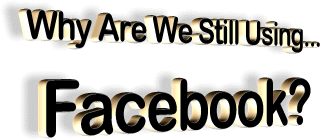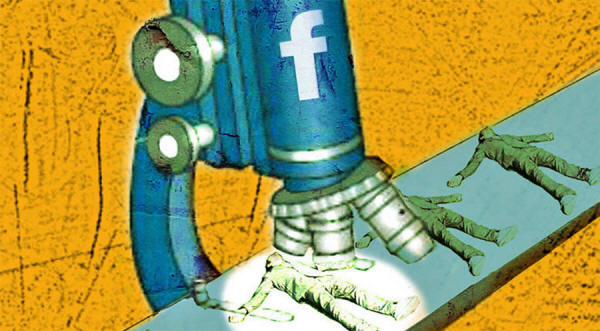|
by Derrick Broze from ActivistPost Website
what multiple studies have already confirmed: the social network has a tendency to make users depressed, stressed,
and envious.
Facebook mentions a University of Michigan study titled "Passive Facebook usage Undermines Affective Well-Being - Experimental and Longitudinal Evidence."
In the study students were randomly assigned to read Facebook for ten minutes.
The students who only scrolled reported feeling in a worse mood by the end of the day when compared to students who talked to friends and posted on Facebook.
The blog post also mentions a study from UC San Diego and Yale which found that people who clicked on about four times as many links as the average person, or who liked twice as many posts, reported worse mental health than average in a survey.
The blog also notes that a study conducted by Facebook and Robert Kraut at Carnegie Mellon University found that people who sent or received more messages, comments and Timeline posts reported improvements in social support, depression and loneliness.
Facebook concludes their post by stating that their research and the academic literature,
Interestingly, Facebook's solution to negative emotional responses caused by too much Facebook is basically to use Facebook more often and in a more social manner.
Facebook writes:
Although Facebook is only now publicly discussing the effects of the social network being so heavily intertwined with billions of people's lives, there have been studies examining the issue since at least 2013.
Reuters UK reported that a group of researchers from the Institute of Information Systems at Berlin's Humboldt University found that,
According to a 2014 study published in Computers in Human Behavior, most users are not very social when using social media, choosing instead to passively consume information.
The study, "Facebook's emotional Consequences - Why Facebook causes a Decrease in Mood and why People still Use It," found that this leaves users feeling unfulfilled and dissatisfied.
Users experienced a decline in mood after spending time scrolling through Facebook.
The mood decline was not prevalent during browsing the Internet in general. The researchers believe people leave Facebook feeling as if they wasted their time and this causes them to feel sad for being unproductive.
Another study (The Interplay between Facebook use, Social Comparison, Envy, and Depression) published in the June 2016 issue of Current Opinion in Psychology found that Facebook contributes to envy of friends and could lead to depression.
A February 2017 study, titled "Association of Facebook Use with Compromised Well-Being - A Longitudinal Study," argues that using Facebook regularly can have a negative effect on a person's well being.
In the report "Seeing Everyone Else's Highlight Reels - How Facebook Usage is Linked to Depressive Symptoms," researchers investigated how social comparison to peers through Facebook interactions might impact users' psychological health.
The research provides evidence that people feel depressed after spending a large amount of time on Facebook. The problem was again attributed to comparing oneself to others.
Indeed, the concern over Facebook use was recently echoed by Sean Parker, Facebook's first president.
Parker was speaking at an Axios event at the National Constitution Center in Philadelphia when he discussed the origins and implications of Facebook:
Parker added:
As Aaron Kesel recently noted,
The implications of these studies should not be ignored.
The world's largest social network is already a partner of the U.S. government and maintains close relationships with intelligence agencies around the world.
The fact that we also know the platform is harming us on an emotional, psychological, and possibly even spiritual level, should not be taken lightly.
|


